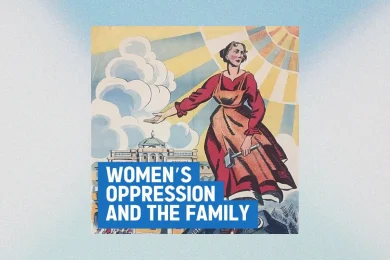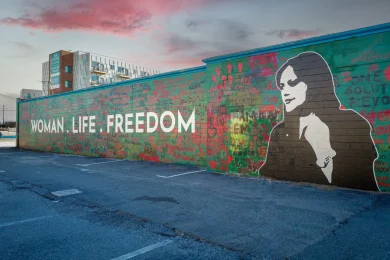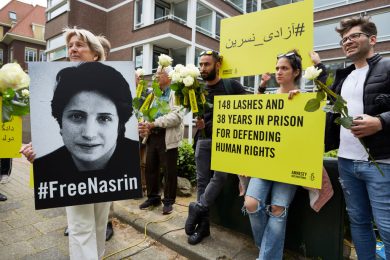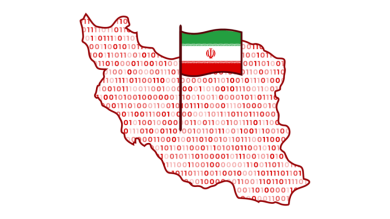Iran’s Islamic Revolutionary Guard Corps (IRGC) is not just a military force—it’s a massive economic empire, with tentacles that reach deep into global markets. From shipping and energy to construction and technology, the IRGC’s web of front companies and subsidiaries helps it fund terrorism, suppress dissent, and wage wars across the Middle East.
The world’s sanctions regimes and regulatory frameworks are supposed to cut off this financial lifeline. But too often, they rely on outdated lists and incomplete data—while the IRGC adapts, hides, and rebrands.
That’s where ordinary people come in. From researchers and journalists to concerned consumers and exiled Iranians, everyday citizens can help expose and disrupt the IRGC’s economic networks abroad. Here’s how.
1. Understanding the IRGC’s Economic Reach
First, let’s be clear: the IRGC’s economic empire is no side hustle. It’s a pillar of the regime.
• Khatam al-Anbiya Construction HQ: The IRGC’s flagship engineering arm, controlling massive infrastructure and energy projects.
• Mines, ports, and telecoms: The IRGC dominates strategic industries like oil, gas, and metals.
• Front companies abroad: Shell firms in places like Turkey, the UAE, Malaysia, and Europe hide IRGC money.
• Dual-use industries: Civilian companies that also produce surveillance tech or weapons components.
For the IRGC, these businesses are both a cash cow and a tool of control—enabling repression at home and proxy wars abroad.
2. Why It Matters: From Your Wallet to Their Guns
Every time a company abroad does business with an IRGC front, it strengthens:
• Human rights abuses: Money that funds torture, executions, and censorship.
• Proxy militias: Funding for Hezbollah, Hamas, the Houthis, and others.
• Corruption: Regime cronies living in luxury while ordinary Iranians suffer.
• Regional instability: Drones in Yemen, rockets in Gaza, militias in Iraq.
The stakes are enormous—and the responsibility to stop it extends beyond governments.
3. How the IRGC Hides Its Footprint
The IRGC’s global business model relies on layers of concealment:
• Shell companies: Registered under false names or foreign partners.
• Complex ownership: Subsidiaries of subsidiaries, hiding the IRGC’s true control.
• “Clean” directors: Front men who appear legitimate but answer to the Guards.
• Dual-use cover: Claiming to produce only civilian goods—while feeding military projects.
• False end-users: Documents that hide the final buyer (often an IRGC unit).
This is deliberate. It’s designed to confuse regulators, investors, and banks—so the IRGC’s money keeps flowing.
4. Step 1: Recognizing the Red Flags
As a citizen investigator, your first task is to recognize the signs of an IRGC-linked company.
Common Red Flags:
✅ Iran-based ownership or senior staff with IRGC ties
✅ Connections to Khatam al-Anbiya or other known IRGC entities
✅ Sectors of strategic interest (oil, gas, steel, shipping, telecoms)
✅ Frequent rebranding or name changes
✅ Opaque ownership structures (e.g., holding companies in free zones)
✅ Involvement in high-risk jurisdictions known for sanctions evasion (UAE, Turkey, Malaysia)
✅ Links to sanctioned Iranian banks or insurance firms
✅ Contract history with the Iranian government in sensitive sectors
If you see these patterns, dig deeper—they often lead back to the IRGC.
5. Tools of the Trade: Basic Investigation Techniques
You don’t need to be a professional investigator. Here’s how to start:
a) Company Registries
Many countries have online registries where you can see ownership, directorship, and filing history. Look for:
• Frequent name changes
• Links to Iranian entities
• Directors with known IRGC ties
b) Sanctions Lists
Check official lists:
• U.S. OFAC’s SDN list
• EU Consolidated Sanctions List
• UN sanctions (less common for IRGC but still relevant)
• UK, Canadian, and Australian sanctions lists
If a company or individual is listed, that’s a red flag and a legal risk for doing business.
c) Open-Source Research
Use:
• News articles
• NGO reports (e.g., Human Rights Watch, Transparency International)
• Academic studies
• Leaked documents (like the Panama Papers)
These often reveal patterns of IRGC involvement or hidden ownership.
6. The Power of Connections: Network Mapping
One of the most effective ways to trace IRGC links is to map relationships.
Ask:
• Who owns the company?
• Who sits on the board?
• Who are the customers and suppliers?
• Who handles the financing (banks, insurance, logistics)?
A company that shares directors or major clients with known IRGC firms is likely part of the same shadow network.
7. Warning Signs in Practice: Case Studies
Example 1: The Iranian Oil Tanker Networks
• Ships registered under third-party flags.
• Frequent name changes and reflagging.
• Shell firms in Dubai managing ownership.
• Use of ship-to-ship transfers in international waters.
These tactics hide the fact that oil sales directly fund the IRGC’s Quds Force.
Example 2: Construction & Engineering “Fronts”
• Khatam al-Anbiya uses subsidiaries in Oman and Iraq to bid on projects.
• These firms claim to be “private,” but contracts reveal direct ties to the IRGC.
• Proceeds fund both infrastructure at home and IRGC proxy groups abroad.
8. Reporting: Why Your Role Matters
If you uncover suspicious links, it’s not enough to just know — reporting is crucial.
Why?
• It alerts regulators and enforcement agencies.
• It warns banks and investors to stop financing repression.
• It helps build cases for future sanctions and asset freezes.
• It amplifies survivor voices by shining a light on the money behind the violence.
9. Where to Report IRGC-Affiliated Companies
Here’s how to turn your findings into action:
✅ Financial Institutions
• If you’re a customer at a bank doing business with a suspicious firm, report it to the bank’s compliance or AML (anti-money laundering) office.
✅ Government Agencies
• In the U.S.: Treasury’s OFAC or FinCEN.
• In the EU: National financial intelligence units (FIUs).
• In the UK: HM Treasury’s Office of Financial Sanctions Implementation (OFSI).
• In Canada: FINTRAC.
• In Australia: AUSTRAC.
✅ NGOs and Watchdog Groups
• Human rights organizations (e.g., Justice for Iran, United Against Nuclear Iran) track IRGC economic activity.
• Whistleblower protections exist in many countries for sharing this data.
✅ Media and Investigative Outlets
• Journalists can use your findings to expose IRGC networks and pressure governments to act.
10. Challenges and Risks: Staying Safe
Investigating IRGC-linked firms can be risky. The regime has a long reach — even abroad.
Tips for Safety:
🔒 Use secure communication tools (Signal, ProtonMail, Tor browser).
🔒 Don’t share personal info publicly.
🔒 If you’re in Iran or have family there, be mindful of what you disclose.
🔒 Work with trusted journalists or NGOs to protect your identity if needed.
11. Global Action: What Governments Must Do
While citizen investigators can shine a light, governments must do the heavy lifting to shut these networks down.
They should:
• Expand sanctions to cover more front companies and shell firms.
• Close loopholes that let IRGC firms rebrand and reopen.
• Hold enablers accountable — including banks, insurers, and logistics companies abroad.
• Increase transparency in corporate ownership (beneficial ownership registries).
• Support civil society to amplify survivor voices and protect whistleblowers.
Conclusion: From Awareness to Accountability
The IRGC’s global economic empire is built on secrecy and fear. But every time an investigator pulls back the curtain, it gets a little weaker.
You don’t need to be an intelligence agent to make a difference.
If you’re a concerned citizen, an Iranian in exile, or someone who just believes in human rights, you can help. Recognize the signs. Report them. Demand action.
Because every dollar, every deal, every shipment that flows to the IRGC is another bullet in a protester’s chest, another prisoner tortured, another family silenced.
Let’s make sure that the world knows who profits from repression — and let’s cut them off.
Join Our Newsletter!
Stay informed with the latest updates, news, and ways to take action in the fight for justice and global security. Sign up now to get updates delivered straight to your inbox!





